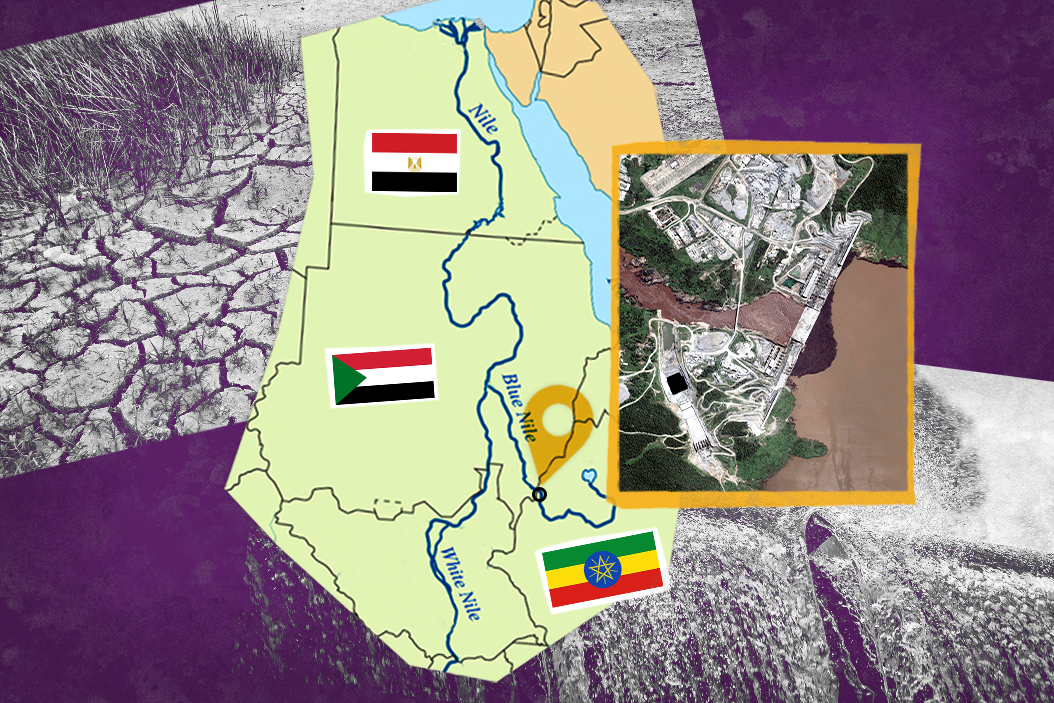Two weeks ago, Ethiopia started filling the Grand Ethiopian Renaissance Dam on the upper Nile river, a $4.6 billion hydroelectric project that aims to bring electricity to tens of millions of energy-starved Ethiopians. Egypt and Sudan cried foul, warning that doing so too quickly will leave their farmers without enough water to irrigate crops. The main reservoir was filled in just a few days, a speed that Addis Ababa blamed on seasonal rains.
But this trilateral dispute is about more than just water — and even the US and China are getting involved. Why is the this dam such a big deal, and what happens next?
A bit of history. Egypt and Sudan argue that the dam is illegal under colonial-era water-sharing agreements that give Cairo — under terms agreed upon with Khartoum — control of the water flows of the Nile and its tributaries at the expense of its upstream neighbors (except Sudan). Addis Ababa accuses Cairo of unfairly perpetuating its monopoly over the water flow of the longest river in Africa, under treaties Ethiopia was not a party to.
These three countries share a vital interest in the Nile. Ethiopia not only wants to generate electricity for the 70 percent of its population who are off the grid, but also aims to become a net exporter of power to neighboring countries.
It's no exaggeration to call the Nile the lifeblood of Egypt. Almost all Egyptian economic activity is concentrated along the banks of the mighty river, and any disruption to its water flow could destroy Egypt's agriculture and tourism industries. Loss of Nile waters is also an existential threat in Sudan, because less water in the Blue Nile, the river's largest tributary, could be the death knell for poor Sudanese farmers already struggling to cope with droughts and floods exacerbated by climate change.
Negotiations have (so far) failed. The concerned parties have been trying to find a solution to their dispute since Ethiopia started building the dam in 2011. With construction now finished, Addis Ababa — fed up with the diplomatic stalemate — has turned on the tap to fill the reservoir, sending less water downstream toward Sudan and Egypt.
What does each side want? Cairo and Khartoum demand a binding agreement on exactly how much water Ethiopia will divert and how quickly it intends to divert it, warning that Addis Ababa must not fill the dam without their consent. Ethiopia wants a more flexible pact that gives Egypt and Sudan little say in Ethiopian management of an Ethiopian dam.
The dam has also stoked nationalist sentiments. In the 1970s, Egyptian President Anwar el-Sadat threatened to go to war with Ethiopia when Addis Ababa first floated the project. Many Egyptians resent that Ethiopia took advantage of the Arab Spring to start construction while Cairo was distracted. Ethiopia says it has every right to draw as much water as it needs from sections of the Blue Nile within its borders.
The threat of conflict has outside players worried. A US-brokered deal to end the dispute collapsed in February because Ethiopia found it one-sided in favor of Egypt, a longtime US ally. Washington may now use foreign aid to coax Ethiopia into a more flexible bargaining position. Beijing also has a stake because it wants to protect multiple Chinese infrastructure investments in the region — including several that depend on the dam itself (which Ethiopia has paid for on its own, by the way).
For now, a war over this dam is unlikely. But water will only become a more precious resource in years to come, and future governments in these three countries may exercise much less restraint. The bigger picture is that almost two-thirds of the world's rivers cross the borders of countries that are home to 40 percent of the global population.
In a world where climate change is wreaking havoc with water supplies, this fight over the Nile could be a warning of conflicts to come.